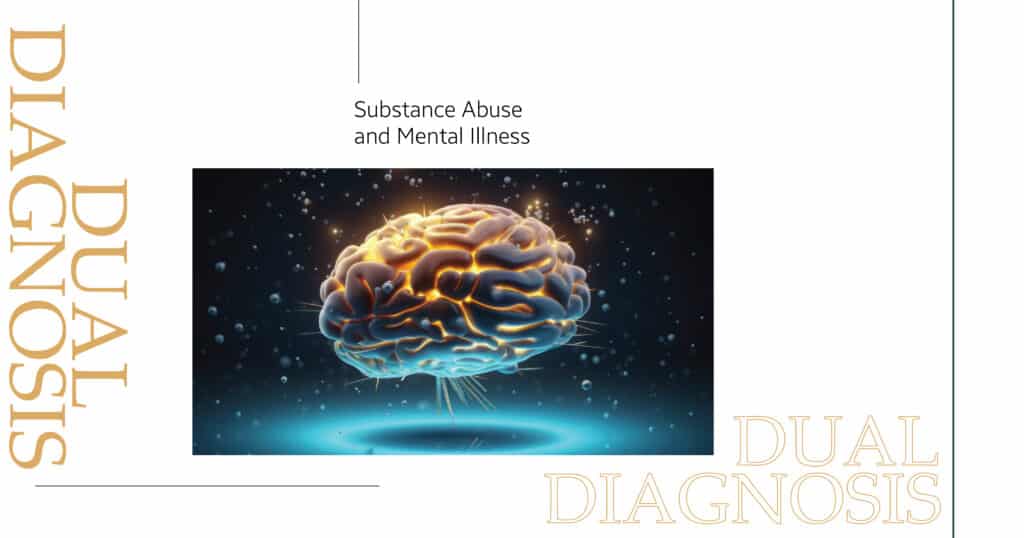Today, let’s embark on a journey through the intricate maze of Dual Diagnosis, where Substance Abuse and Mental Illness tango in a dance that often leaves individuals bewildered. New Origins, our trusted guide in this adventure, is here to shed light on this perplexing union and explore the avenues of hope and recovery.
Breaking Down the Basics
What Exactly is Dual Diagnosis?
Let’s kick things off by demystifying the term. Dual Diagnosis, in a nutshell, refers to the coexistence of substance abuse issues and mental health challenges. It’s like having a tandem of hurdles, each influencing and aggravating the other. It’s a bit like trying to untangle headphone wires — tricky but not impossible.
The Vicious Cycle: Substance Abuse and Mental Illness
Picture this: mental health issues and substance abuse are locked in a relentless loop, each one taking its toll on the other. Mental health problems can trigger a desire to self-medicate, leading to substance abuse. Conversely, substance abuse can mess with your mental health, creating a merry-go-round of chaos.
New Origins’ Approach: A Fresh Start
Crafting Coping Skills
At New Origins, the focus isn’t just on treating symptoms but on building a toolkit for life. We believe in arming individuals with coping skills that stand sturdy in the face of both substance abuse and mental health struggles. It’s like giving you a Swiss Army knife for the challenges that lie ahead.
A Continuum of Care
Our program fits into the larger jigsaw puzzle of care, seamlessly slotting into the spectrum after residential treatment. However, we’re no strangers to being the trailblazers, starting the journey with those who need a softer, outpatient entry. It’s all about flexibility and meeting individuals where they are.
Navigating the Wilderness: Challenges and Triumphs
Identifying the Doppelgangers: Recognizing Dual Diagnosis
Recognizing the intricate dance between substance abuse and mental health issues is the first step. It’s akin to deciphering Morse code — dots and dashes that reveal a hidden message. At New Origins, our trained experts are adept at spotting the nuances helping individuals put a name to the challenges they face.
Untangling the Knot: The Treatment Tango
Treating dual diagnosis is a delicate dance, a waltz where each step matters. Therapies are tailored to address both aspects, like a customized potion that targets the specific blend of troubles a person encounters. It’s not a one-size-fits-all scenario; it’s a bespoke journey to recovery.
Beyond the Horizon: Hope and Renewal
Painting a New Canvas: Life After Dual Diagnosis
Recovery isn’t just about overcoming hurdles; it’s about creating a masterpiece with the pieces. At New Origins, we champion the idea that life post-dual diagnosis is an opportunity for renewal. Picture it as a phoenix rising from the ashes — a symbol of resilience and a new beginning.
Community, Connection, and Continuing Care
Recovery isn’t a solitary affair; it’s a team effort. New Origins fosters a sense of community where individuals share their triumphs and challenges. It’s a bit like a potluck dinner — everyone brings something to the table, creating a rich tapestry of support. And the care doesn’t end; it evolves, adapting to the changing needs of each person.
The Grand Finale
As we draw the curtains on our exploration of Dual Diagnosis with New Origins as our compass, it’s evident that this journey isn’t just about endings; it’s about beginnings. The conclusion of one chapter sparks the commencement of another.
In the realm of Dual Diagnosis, New Origins stands as a beacon, guiding individuals through the shadows into the light of recovery. It’s not merely an end; it’s a metamorphosis, a transformation from chaos to clarity.
So, the next time you find yourself entangled in the intricate dance of Substance Abuse and Mental Illness, remember: New Origins is here, not just to conclude a chapter but to script a whole new narrative.


